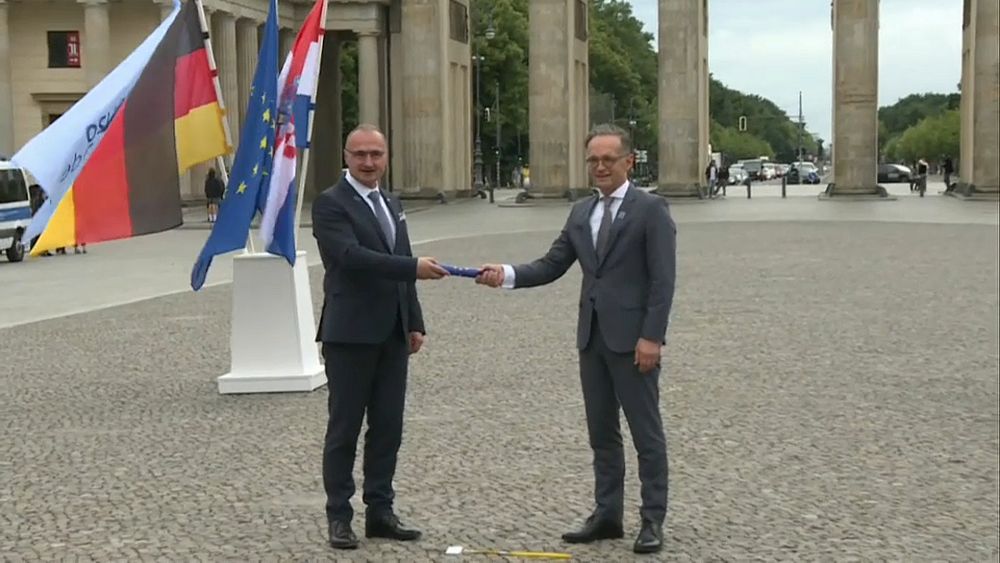July 1st: The baton is handed over. Germany officially takes over the EU Council Presidency from Croatia. Expectations are high: the EU is in the middle of a deadly pandemic, the economy has collapsed dramatically and the EU’s ambitious political projects are being put on hold. But there is hope that in the next six months, with the experience of German Chancellor Angela Merkel, Europe can be saved from economic catastrophe.
Nicolai von Ondarza from the German Institute for International Politics and Security draws a mixed balance: “The most important goal of the German Council Presidency was to reach an agreement on the rescue fund and the MFF. And with the latest agreement at the European Council, we can really say that this main goal has been achieved. Everything else was overshadowed by the difficulties of the corona pandemic. “
Merkel and her allies in the Council, particularly French President Emmanuel Macron, pushed for an unprecedented action: the EU would borrow together for the first time to help those hardest hit and ensure a strong recovery. A total of 1.8 trillion euros is to be mobilized over the next few years. But by agreeing to joint debt, Germany threw overboard the budget and financial policy it had pursued for decades.
Katharina Barley (SPD), Vice-President of the European Parliament: “The German Council Presidency made a big difference when it came to solidarity in the Corona crisis. The Franco-German proposal came with great relief and, I would say, even with something like gratitude, probably from some member states and many members of parliament. Because reacting differently than Germany during the financial crisis was something that was extremely important for Europe as a whole. “
The fight against the pandemic overshadowed almost every other major political issue such as migration or climate protection. The long-simmering conflict over respect for the rule of law took center stage when it suddenly became intertwined with the fight against the coronavirus. In the end, an agreement was reached with Poland and Hungary after both countries vetoed the EU’s pandemic aid package. Criticism from Reinhard Bütikofer, MEP of the German Greens: “You burdened the European Parliament and the Commission with correcting injustices while they were playing business as usual with the Hungarians and Poles. That doesn’t work. Because if the member states of the Deducting the obligation to insist on the rule of law, the single institutions, Parliament and the Council, will find it very difficult to push through this agenda alone. “
It will be different shortly after Christmas, when the baton of the EU Presidency will be handed over to Portugal.
– .


